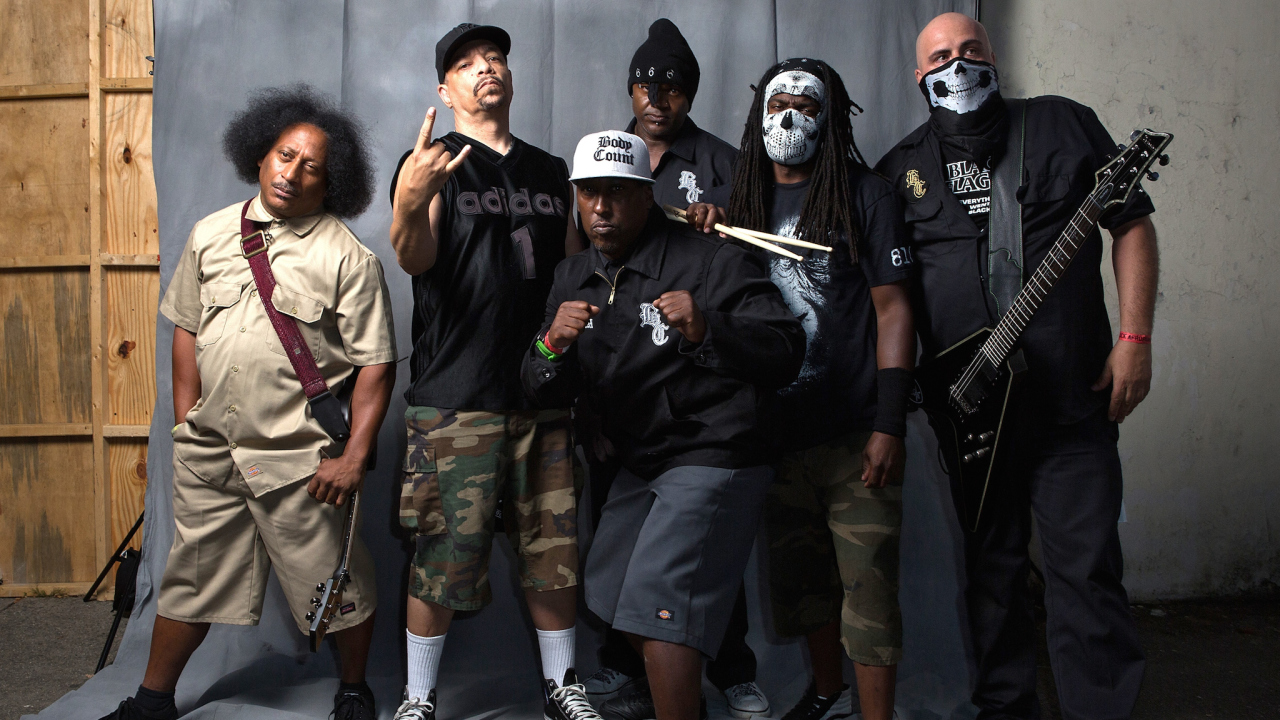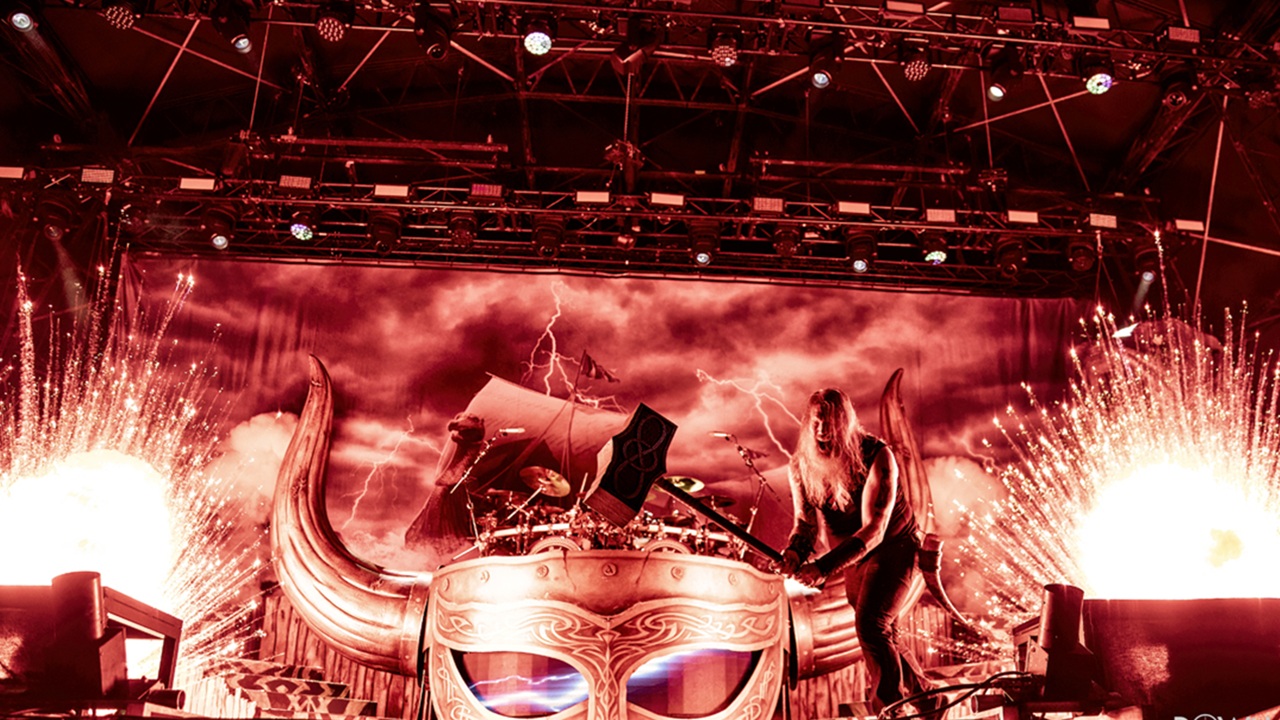You can trust Louder
As events in Ferguson, Missouri continue to dominate the news in America after the shooting of Michael Brown, the timing couldn’t be more apt for the 10th annual Afropunk Festival. First held in 2005 as a showcase for black musical acts who don't necessarily conform to or fit the mainstream conception of what that should be, this weekend offers up an eclectic selection of bands to appeal to the wonderfully diverse crowd that floods Commodore Barry Park. And while bands of all genres are playing across the festival's four stages – including main headliners Sharon Jones & The Dapkings and D’Angelo – true to its name, Afropunk also offers up a wealth of heavier, more aggressive acts.
California’s The Bots (7) – brothers Mikaiah and Anaiah Lei, who are 20 and 17 respectively – are a wild explosion of rock and blues that kicks the first day’s early evening into gear. And even when their (one) guitar cuts out, the pair’s enthusiastic demeanour – which is clearly audible in their songs – carries them through. There’s no such pleasantries from Trash Talk (8), who incite a riotous response from the large crowd that gathers to watch Lee Spielman and company turn the stage inside out. The frontman spends much of the set both bleeding from his forehead and in the swelling pit that circles around his flailing body. And while often it seems like the Sacramento band are angry for no good reason, this evening there’s real menace to the frenzy and agitation of Babylon, CA and Awake. Yet there’s also a rare show of compassion and consideration, urging the crowd to look after and out for each other, something very in keeping with the overall vibe of unity at the festival. Still, halfway through final song Birth Plague Die Spielman instructs the whole crowd to “run to the Bad Brains!” There’s a sense of genuine panic as people start doing just that. “I don’t want you to be back here,” he screams. “I don’t want to see your fucking face again!” Most oblige, but there’s still a good group surrounding the singer as the song dies out, bassist Spencer Pollard standing atop the stage awning watching the carnage die down.
Spielman himself turns up at the Bad Brains (6) gig a short while later, inserting himself in the mosh pit during the band’s more aggressive moments. For whatever reason, singer HD isn’t present for the gig, so a variety of stand-in singers take his place as the set veers wildly between reggae, ska, hip-hop and hardcore. It’s up to Corey Glover and, later, Cro-Mag’s John Joseph – once a roadie for Bad Brains – to take charge for the more punk sides of the set. Perhaps due to the rotation of singers, not to mention the genre switching jam session vibe, it’s a set that, on the whole, struggles to find its pace. Despite a few charged moments like Right Brigade, it feels as if the momentum runs out before the band finish playing.
It doesn’t help that, across the way, Body Count (8) are warming up. The music can be a little silly, but when Ice-T introduces the band’s controversial 1992 song Cop Killer in the context of what’s happening in Ferguson, his impassioned tirade fills the air with both poignancy and potency. “We need young leaders,” he says. “We need some of y’all motherfuckers to step up. We need 19 year-old motherfuckers. When we were talking all that shit, we were in our twenties. We made the motherfucking country listen to us. You’re not gonna make nobody listen singing about how much money you got, singing about shakin’ your ass’. That’s bullshit. Open your motherfucking mouth and say something.” He even goes so far as to challenge NBC, the network which produces Law & Order: SVU, to fire him for “speaking the truth.” Even without the song to follow it, it’s a truly powerful moment – one not just worth remembering, but one worth acting on. As the crowd goes nuts, you can only hope that some of them will.
Brooklyn trio Unlocking The Truth (9) are probably too young to have been at that Bodycount performance, but they’re doing just that anyway. The metal tween trio made the news after they signed a huge record deal with Sony recently, but their performance the next day’s shows that they certainly have the talent – and the charisma – to justify the hype. That three young kids can play metal as well and as convincingly as they do is impressive enough, but that they can do it so well live is pretty insane. Sure, the fact they’re barely in their teens does add a wow-factor to their songs that probably lauds them higher reviews a band twice their age would get for playing the same songs, but watching them rip through Monster with such precision, and them stumble over themselves slightly while promoting the t-shirts they have for sale is a thoroughly heart-warming and adorable experience. How they learned to play the way they do is anyone’s guess, but if they’re this good now, who knows what they’ll be capable of in even just five years’ time.
Sadly, it puts Cro-Mags (5) to shame a little bit. While the seminal NY hardcore/thrash metal crossover crew dole out aggression in spades, their fire doesn’t burn particularly bright this evening. John Joseph barks out his woes and his frustrations, but it’s hard to tell if he actually feels anything anymore or is just going through the motions. His presence is also quite awkward – and much more so than when he’d guested with Bad Brains the previous day. As such, their set feels somewhat lacklustre. There’s no doubting the influence that they’ve had on the scene, but tonight comes off more as fake rage than rebellious punk with a cause. Still, the majority of Afropunk is the former, and the sense of unity (whether in terms of race, gender, sexual persuasion or whatever else) promoted over these two days and celebrated by the bands present, is incredible. It all makes for a valuable reminder, especially in the context of Ferguson, of the immense, positive power that music can have.
Sign up below to get the latest from Metal Hammer, plus exclusive special offers, direct to your inbox!

